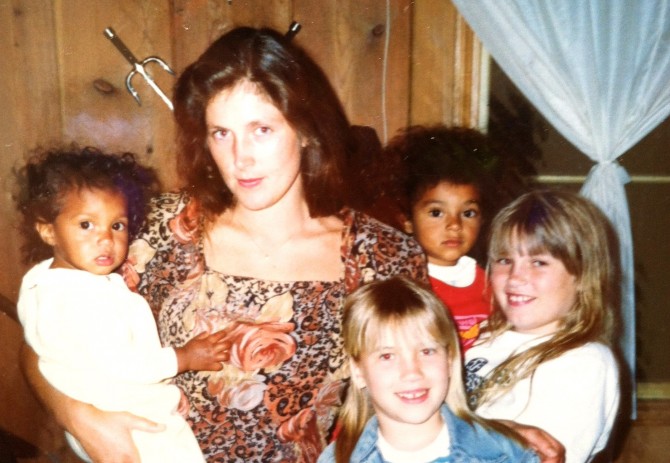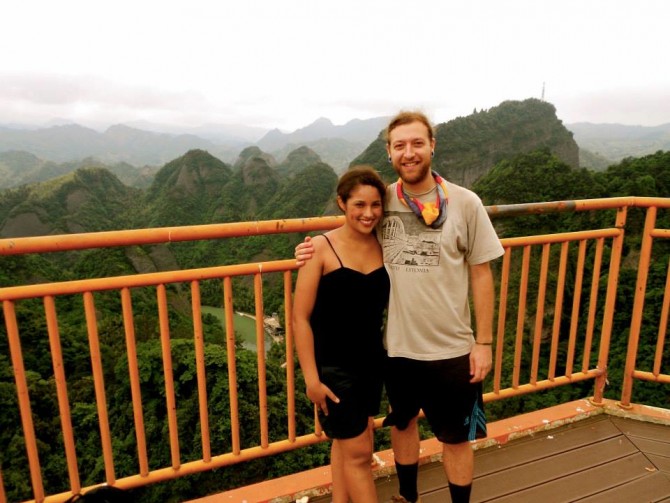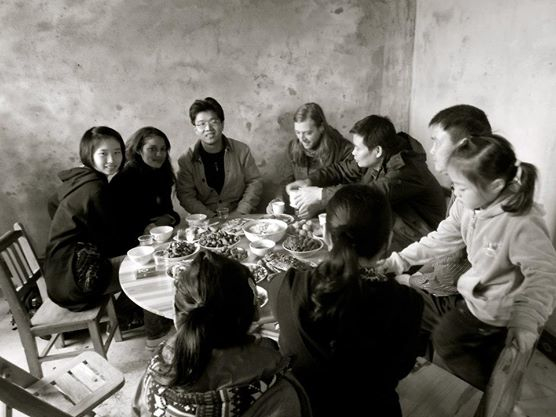Identity Shifters: Travelling Mixed Race
My mixed identity abroad is a malleable one. It’s a part of me everywhere I go, but its meaning changes with each place. I am constantly shifting, which is paradoxically both limiting and expansive at once.
I bounce somewhere between the only girl that’s of colour in many instances, and the girl who acts too white in many others
In truth, this is how it’s been my entire life. I grew up in a white Californian beach community with my mother, whose ancestors are European, and my Jamaican father who is of African, Indian, and Native American descent. I’ve learned to be comfortable with the fact that I am different things in different places. It makes for a powerful tool, blending in or standing out as you choose. Although, I do not always have the choice.

Last year, I taught high school English in China, living with a white American teacher, who was a vegan and a self-proclaimed Anarchist. He turned out to be one of the most intense ‘shifters’ I have ever met. Needless to say, we inhabited the same spaces physically (spending over 6 days per week in each other’s company and living together in the same apartment) and our experiences throughout were bound together intimately from the beginning. We are about as different as can possibly be, and our discussions, as well as the self-education process that went on for us both, because of each other, was profound.
Over the course of the year we fell in and out of love and friendship. We became very aware of our need for each other, as well as detesting the way we highlighted each other’s differences just by virtue of being. Intimate feelings of who we really were under the dust of our shades were expressed while drinking, laughing, talking and remembering around the coffee table in our shared Chinese apartment.
It’s funny how much you grow to depend on someone no matter how different, when you inhabit the same foreign world together.

I felt protected by having him there as well as targeted because of it, much in the same way I do by my mixed identity. The truth in our situation was that we both had complex visions of ourselves that, while acknowledging how the outside world sees us, had very little to do with it. We tackled these issues through respectful relation to each other, inspired by our co-existence together in China, which appropriately is a land with vast complexities in its notions of identity. It couldn’t have happened in the same way anywhere else.
A relevant microcosm of our fights about our differences happened the day we were asked to speak publicly about our views on the environment. At the gathering it was quickly revealed that he (the only white male among us) would take the mic as he was an obvious choice to represent us all as a unit. I remember him expressing unease with this selection that would happen continuously throughout our time in China, and I remember thinking decidedly that he was a weakling because he didn’t say more in protest.

I felt weird for being left out, he felt weird for being selected. This happened to us often, and in the end, we’d usually end up leaving together to go do something of our own choosing, something where we could both be acknowledged in our differences without all the extra baggage of being selected for it.
On the train recently in France where I currently teach, I had the pleasure of sitting next to some Francophone Africans who perhaps involuntarily allowed me to remain inconspicuous. I can’t say the same for the dudes who were sitting two rows ahead, talking too loudly in American English about getting wasted on Absinthe.
I thought about engaging in the “Where are you from? Me too. Cali.” convo with them, and then decided against it.
I began to notice the African guys making fun of these Americans in French. I realized they couldn’t tell that I was American. I wondered if this was about my skin colour, how I carried myself, or just oversight on their part. Maybe they knew and just didn’t care. I thought about questions that constantly have changing answers for me: How do you identify? How do others classify you? What do people assume about you based on how you occupy the spaces you are in? Being foreign, but not of any obvious nationality, while traveling, creates a unique space for these considerations.
In France, I obviously get to be Metisse but inconspicuous with nationality. In China, people were shocked when I said Měi-guó (America in Mandarin), but they couldn’t come up with an answer when I asked where they thought I was from? In the States, I bounce somewhere between the only girl that’s of colour in many instances, and the girl who acts too white in many others. Increasingly, I’ve started to see that going forward, I can be Afropean, and keep company with all the others who shift in and out of this complex amalgamation of identities.
I am beginning to notice that regardless of shade, the shifters are more common than ever before.
By Veronique Whittaker


